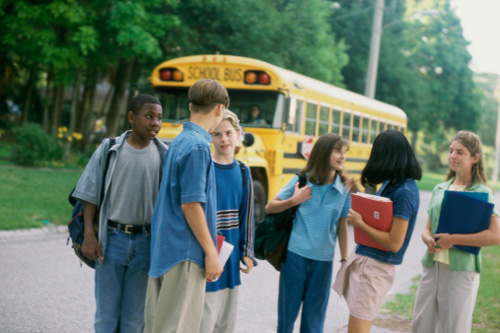 A plan by Adapt Pharma to provide “Naloxone”—a drug that can quickly treat heroin and painkiller overdoses and is sold under the name “Narcan” for free to high schools across the U.S.—is set to begin. Availability of the drug, however, is only one part of the equation. State rules and restrictions, along with ethical questions, still remain.
A plan by Adapt Pharma to provide “Naloxone”—a drug that can quickly treat heroin and painkiller overdoses and is sold under the name “Narcan” for free to high schools across the U.S.—is set to begin. Availability of the drug, however, is only one part of the equation. State rules and restrictions, along with ethical questions, still remain.
These issues were acknowledged during this week’s summit held by the Clinton Foundation’s Health Matters Initiative, a partner with Adapt Pharma on the project. Simply having access to naloxone does not guarantee that high schools will be able to use the drug, which is administered via a nasal spray.
Rules governing which school staff members can deliver drugs and in what circumstances vary wildly from state to state and sometimes within individual school districts. In some schools, staff would be able to administer naloxone but would open themselves to liability from parents and guardians. In others, only school nurses are permitted to administer drugs, which would be fine except that many school nurses work at several locations within a single week and are not always on hand.
On the plus side, some states do already employ good overdose protocols in schools. Rhode Island, for instance, requires naloxone to be stocked at all schools from middle through high school level. Kentucky and New York shields staff members from liability if they administer the drug.
Although still rare, drug overdose deaths are on the rise among high schools and have roughly tripled in recent years, jumping from 3,036 in 2010 to 10,574 in 2014. It is this rising rate that prompted Adapt Pharma’s decision to supply all high schools with a carton of naloxone. Although the company recognizes that there are hurdles to overcome, the first steps should still be taken.
There is opposition to the ready availability of naloxone. Maine’s governor, for instance, has twice vetoed measures that would make naloxone more accessible. Most of the concerns revolve around the ethics of allowing drug users to essentially pursue their activity free of consequences. The belief among objectors is that ready access to naloxone will give drug users a false sense of security.
Painkiller overdoses can also happen to regular prescribed patients by accident and are not necessarily caused by addiction or illicit use.
Naloxone is an extremely potent treatment and is capable of rapidly reversing a potential overdose situation. It does, however, come with a very noticeable side effect of causing immediate onset of withdrawal symptoms. This trait means that naloxone has to be delivered under proper care and alongside other treatments, but it can offer valuable relief in situations where every second counts.
Along with Naloxone, Adapt Pharma’s program will include opioid overdose education, although schools will be able to opt out of this part if they choose.
Sources for Today’s Article:
Leonard, K., “Coming to a High School Near You: Drugs That Reverse Heroin Overdoses,” US News web site, January 25, 2016; http://www.usnews.com/news/articles/2016-01-25/overdose-reversal-drug-naloxone-offered-free-to-high-schools.
Zendehnam, S., “Overdose Reversal Drug Now Available Free for High Schools Across the Country,” FOX40 web site, January 27, 2016; http://fox40.com/2016/01/27/overdose-reversal-drug-now-available-free-for-high-schools-across-the-country/.
